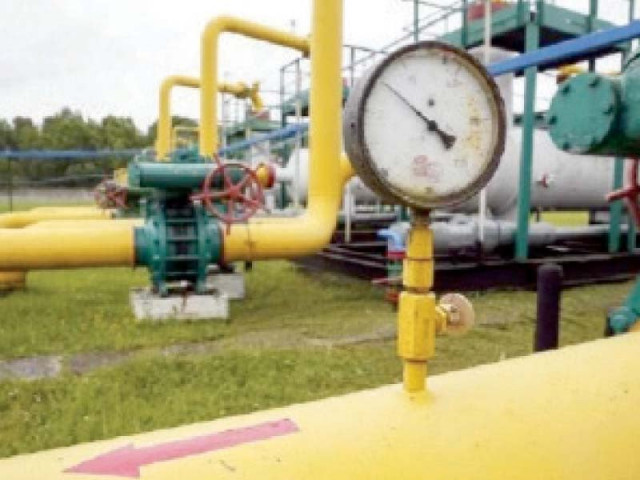Legal rows delay cheaper gas supply
Litigation hampers inflow of foreign investment, E&P activities

Several legal disputes in the exploration and production (E&P) sector of Pakistan have caused delay in injecting 250 million cubic feet per day (mmcfd) of cheaper gas into the national network, industry officials say.
Currently, there are around 62 cases between various companies and the government.
The litigation in energy sector has also discouraged the inflow of new investment as the previous governments received a poor response from the E&P companies to the bids invited for the award of exploration licences.
Even the Pakistan Tehreek-e-Insaf (PTI) government, which stepped down in early April, sought bids from the oil and gas firms but did not receive encouraging response from them.
Moreover, a majority of foreign companies have pulled out of Pakistan due to an unfavourable regulatory environment.
At a time when Pakistan is importing liquefied natural gas (LNG) at a high rate of $25 per million British thermal units (mmbtu), it has been deprived of around 250 mmcfd for just $4 per unit, which causes an annual loss of around $2 billion.
According to sources and available documents, the unnecessary litigation in the E&P sector has caused losses of billions of dollars and has also resulted in spending of billions on the import of expensive LNG.
In addition, the dependence on imported LNG has trapped the state-run companies like Pakistan State Oil, Pakistan LNG Limited and Sui Northern Gas Pipelines in the circular debt.
According to officials, the government is relying on court cases rather than finding out-of-court settlements to clear the way for injecting cheaper indigenous gas into the system.
In the meantime, the power tariff has also gone up due to the monthly fuel cost adjustment in the backdrop of higher fuel prices, including LNG.
Owing to the poor regulatory environment, all major E&P companies have left the country, which include BP, Premier, OMV, BHP, Exxon and now Eni.
In a recent case involving Hycarbex and the government, the Islamabad High Court decided in favour of the company on February 4, 2022.
Following that, it has been decided that the cabinet will be approached to seek approval of all issues relating to the E&P sector. A summary will be sent to the cabinet to seek decision in this regard.
Due to the deadlock, around 18 exploration licences have expired and are awaiting extension.
Apart from that, around 60 mining, and development and production leases have also expired and require extension, around 21 fields are under the Extended Well Testing (EWT) and are awaiting conversion to a lease contract, and the approval of eight new EWT applications is pending.
This has caused delay in the injection of about 180 to 250 mmcfd of cheap indigenous gas into the national system.
Industry officials were of the view that the government should immediately reach out-of-court settlements with the companies like the way it struck the Reko Diq copper and gold project deal with foreign companies.
The pointless litigation did not bode well for investment in the diminishing sector and the shifts in stance on policy matters would create more mistrust among the field operators and E&P companies by impeding the E&P activities, they said.
The industry officials pointed out that due to such an environment, all major E&P players had already left the country including Italy’s Eni, which recently decided to exit Pakistan.
At present, the government is facing the dwindling foreign exchange reserves and seeking the release of International Monetary Fund’s loan instalment. Also, the rupee has significantly depreciated against the US dollar, with tight supply of the greenback.
In such a situation, the government should settle issues with the E&P companies in order to utilise the domestic gas resources to ease pressure on the forex reserves, the officials emphasised.
“We are passing through critical times with tight dollar supply and high energy prices in the global market, therefore the government should immediately find out a solution and inject the local energy resources into the domestic network,” an oil and gas industry player said.
Published in The Express Tribune, May 31st, 2022.
Like Business on Facebook, follow @TribuneBiz on Twitter to stay informed and join in the conversation.


















COMMENTS
Comments are moderated and generally will be posted if they are on-topic and not abusive.
For more information, please see our Comments FAQ